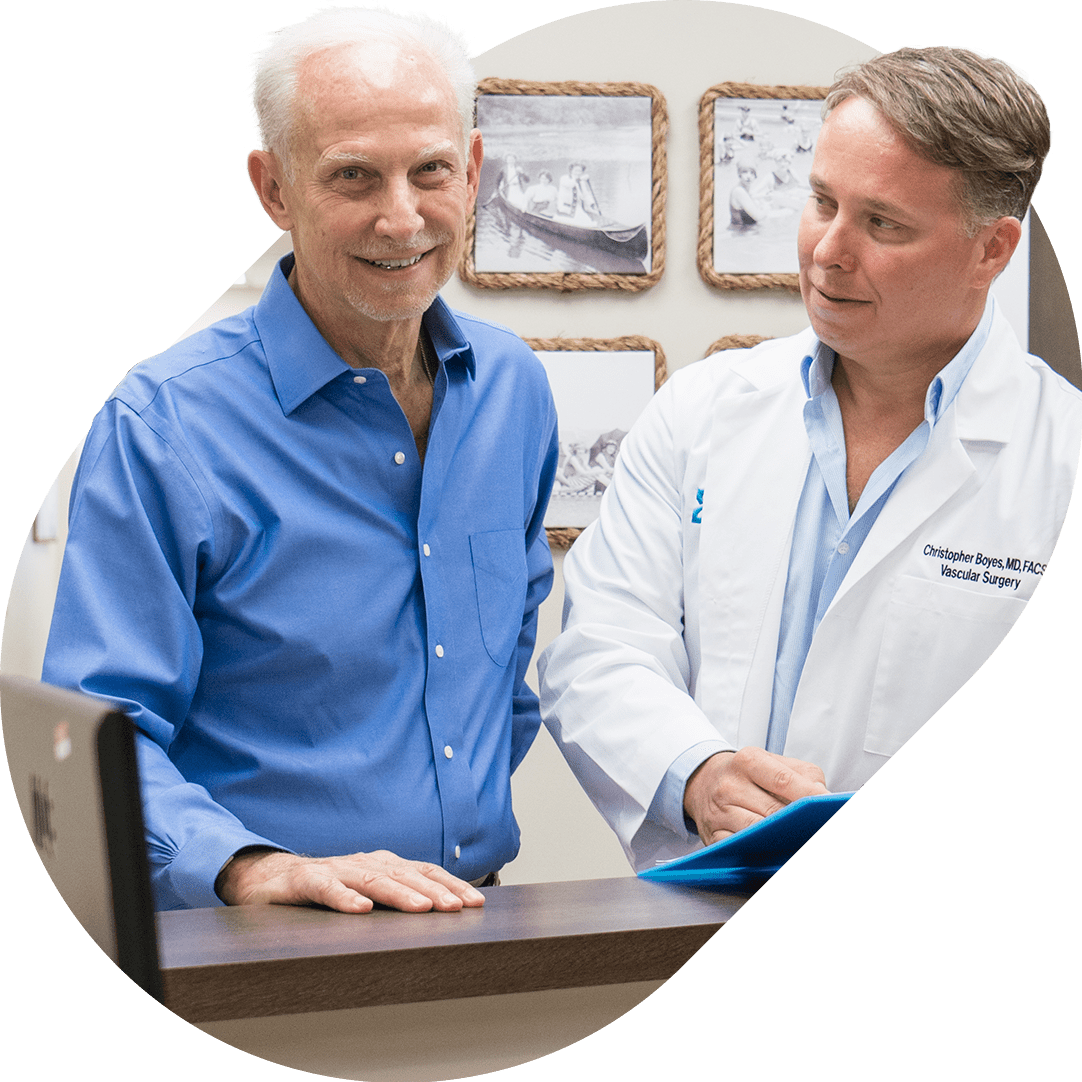Some people are at a higher risk of developing certain diseases and disorders based on their family’s medical history – but is vascular disease hereditary? If several blood-related family members have struggled with vascular disease, does that mean that you’ll have a high chance of being diagnosed as well?
Blood clots, such as those that form from deep vein thrombosis (DVT), can be caused by a number of variables. For some people, they are caused by damage to the valves in a vein or from an injury or infection. For others, they are caused by disease or conditions that cause the blood to flow slower than usual. Congestive heart failure is one of these conditions. A sedentary lifestyle can lead to poor blood circulation which can be a problem for those who are on extended bed rest, such as post-surgery patients.
Blood clot formation can be related to genetic factors that make the blood more likely to clot. Factor V Leiden thrombophilia and prothrombin gene mutation are two such genetic disorders that can cause abnormal blood clots.
Varicose veins are often found in women, but men can be affected as well. The bulging veins, most often found on the thighs and calves, can appear bright purple or red in color. Capillaries can become swollen, often caused by pregnancy, excessive weight, and even being on your feet for long periods of time. Some with varicose veins may not feel much pain, while others may sense swelling and aching, particularly notable at the end of the day.
The condition of varicose vein formation can be genetic and passed down through generations, with contributing factors being hormonal influences and a history of blood clots. Environment and lifestyle factors can also play a role in the development of varicose and spider veins.
Peripheral Artery Disease, or PAD, has been studied for years to determine if it is, or isn’t, a genetically passed disease. PAD is a common circulatory condition where blood vessels narrow due to plaque build-up in the arteries. The effect is that blood flow to the limbs is reduced. While walking may be painful, it’s important to keep moving to encourage blood flow.
A genetic link to PAD is not clear because many of the risk factors of the disease themselves are inheritable. These inheritable diseases and risk factors include diabetes, high blood pressure, and high cholesterol. While PAD may or may not be a hereditary condition, it is influenced by other conditions that are hereditary.
Regardless of genetics, vascular diseases and disorders can be prevented, mitigated and treated in order to improve quality of life. Varicose veins and spider veins can be removed with minimally invasive surgery. Blood thinners and an active lifestyle can help reduce the risks of blood clots that can cause serious health issues including pulmonary embolisms. Similar treatment is also recommended for individuals diagnosed with PAD.
If your family’s health has made you concerned about your risk for developing vascular disease, the best things that you can do is maintain a healthy lifestyle including regular exercise and eating a balanced diet including fruits and vegetables. Make a commitment to not smoke or quit smoking for good if you’ve previously picked up the habit. If you have already been diagnosed or exhibit some of the symptoms of vascular disease, contact the Coastal Vein and Vascular Specialists in Palm Beach Gardens. Our professional staff of vascular doctors, nurses, and surgeons are knowledgeable in therapies and treatments for some of the most complex vascular diseases and disorders.

Subscribe to our newsletter